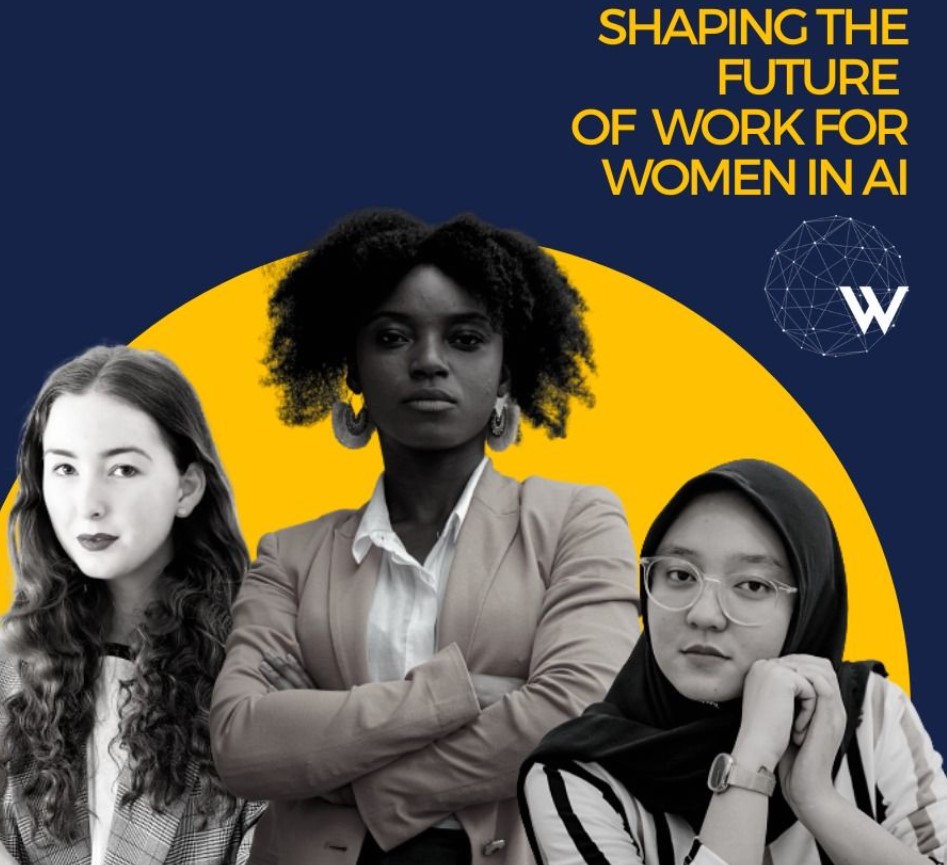For those who work in the field of artificial intelligence it is difficult not to run into issues such as gender equality and gender bias, equal opportunities and balance challenges. For this reason it becomes necessary and mandatory to know and contribute positively to the change, rethinking, growth and success of working environments and opportunities.
AI is omnipresent, and its increasing presence in everyday life necessitates that creators reflect diversity of the population so that systems are designed to serve people of all backgrounds.
Women in the Artificial Intelligence workforce
The last few years have seen a pivotal shift in the consideration of the role of women in society, from the private sector to governments and regulatory institutions both at regional and global levels. The topic of women’s representation has been supported by a larger realization that diversity is critical to success. Diversity is a wide concept and it comprises of gender, race, ethnicity, and cultural background which are all key aspects to enrich traditionally male-dominated sectors with new opinions and ideas.
Practical demonstration of this mindset shift towards engendering diversity can be witnessed in the many awareness campaigns and actions at a global scale. For instance, the gender index that tracks the progress towards closing the gender gap across countries and sectors as well as the vast media coverage on women in leadership positions and women-led organizations often showcase the positive impact of gender diversity at work and in society in general.
As many concrete actions toward gender equity continue to grow, there has been limited attention to the challenges that women are facing in their everyday lives. Work environments have been designed and optimized for men and highly influenced by their own perspectives and needs. A broader and diverse approach is of paramount importance if the goal is to attract more women in the workforce and, most importantly to retain them in those new career opportunities.
This report gives voice to those women who are or aim to enter the Artificial Intelligence (AI) workforce and provides a platform for them to express their needs on how to reconceptualise working environments to
enable growth and success for everyone.
Alessandra Sala, President of Women in AI
Gender balance and equal opportunities
”Our world is made up of biases. Even with the hardest efforts, we will still be biased human beings. It is thus important that teams building the future of our world with AI applications embrace internal diversity as much as they can, in order to create an inclusive AI and represent the right image of a multicultural society. That’s why we need not only more women in AI, but more diversity in general. This can extend to the skin color, religion, education, country, family, age” (Women in AI founders).
AI is part of everyone’s lives. People interact with it every day even when they are not aware of its presence around them. Given its penetrating influence, it is essential that the “creators” reflect the diversity of the population, otherwise people will always interact with systems designed to serve only the needs of a certain subset.

Women in AI’s mission is to help shape inclusive AI
Women in AI’s (WAI) mission is to help shape inclusive AI in a world, where most tech jobs are still held by men. Our global community represents the diversity and talent many companies around the world are looking for. We have the voice and power to communicate clearly what we want and need to find, choose and stay happy in a workplace. Read the full WAI@WORK report to learn from women working in AI how companies can change and create more diverse work culture.
A survey to help retain Women in AI workers
With the support of AI Sweden, Women in AI were able to published a survey and conducted interviews with leading women working in AI as tools to provide guidance for companies to help attract more women to AI roles and retain their female workforce.
The survey was targeted at the substantial Women in AI community and shared among its networks to evaluate the experiences of women working in AI: their current satisfaction, their expectations, and if relevant their history with discrimination and sexual harassment.
This preliminary report is based on the first 200 survey respondents from November to December 2021, of which almost all are women (99%), those who currently work in AI (81%), and have worked in the field for over 2 years (63%).
This article has been extracted and freely adapted from Women in AI website (2022)

